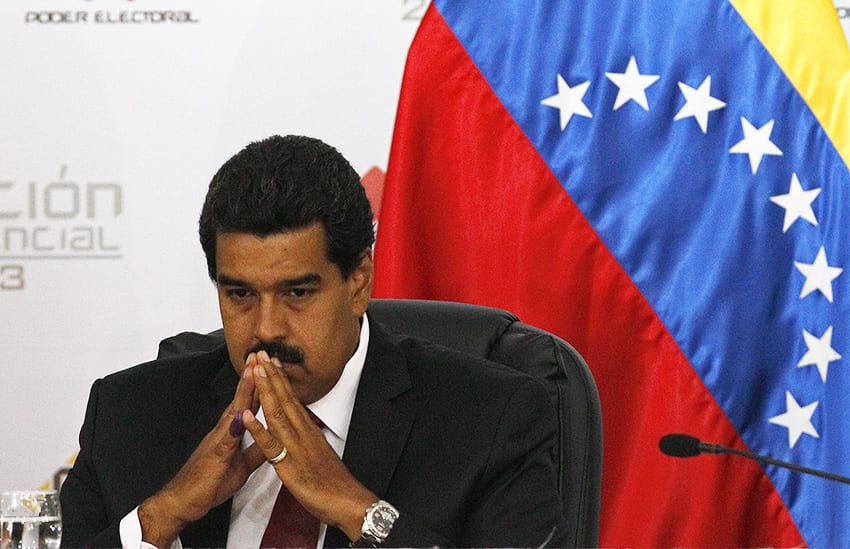While the Trump administration defended its most recent round of sanctions against the government of Venezuela, President Nicolas Maduro’s foreign ministry denounced the order calling it “another serious aggression by the Trump administration through arbitrary economic terrorism against the Venezuelan people.”
On Monday night, in what is considered the strongest economic action against the Maduro regime to date, President Donald Trump signed an executive order completely banning Americans from doing business with Venezuela’s current government, and freezing the US-based assets of both members of Maduro’s government, as well as anyone who does business, directly or indirectly with the government, including the Venezuelan state-run oil company Petroleos de Venezuela, S.A. (PdVSA).
The US government, which severed ties with the Maduro government in January of this year, seeks to pressure Maduro to step down to allow Opposition Leader Juan Guido to take his place as interim President.
Speaking at a conference in Lima, Peru on Tuesday, US National Security Adviser John Bolton made it clear that the US Government wants Maduro gone.
“This is a clear demonstration of the resolve of President Donald Trump and the American government to see the peaceful transition of power from Maduro to Guiado,” Bolton said.
Bolton then drew the proverbial line in the sand for those who do business with the Maduro government, saying, “There is no need to risk your business interests with the United States for the purposes of profiting from a corrupt and dying regime,” Bolton stated.
Following the announcement, the United Nations expressed concerns that added sanctions can exacerbate the on-going humanitarian crisis in the nation. However, Trump’s order does contain clear exemptions for humanitarian aid as well as anyone who has been given a specific exemption from the US government.
This exemption includes American oil major Chevron and its associated prime contractors Schlumberger, Halliburton, Baker Hughes and Weatherford. Notwithstanding, this exemption, which was granted late last month, is expected to expire on October 27, 2019. After the deadline, Chevron, the lone American oil company still present in Venezuela, will be required by the US government to end its nearly century-old operations in the socialist nation, or also face the brunt of US regulators.
According to CNN, the Maduro regime, in a statement issued on Tuesday by its foreign ministry, strongly condemned the latest round of sanctions and called for national unity from the people of Venezuela.
“This decision from the government in the United States attempts to award a legal form to the sanctions in all the assets and properties of the Venezuelan state, constituting the most grotesque and shameless sacking in international relation’s modern history… In the face of the imperialist attack, President Nicolas Maduro ratifies his call to unity for all Venezuelans to confront the economic and political terrorism in this new phase.”
When asked by a reporter how Venezuela would respond to the executive order, Venezuelan Foreign Minister Jorge Arreaza responded: “I’m going to paraphrase Donald Trump … All options are on the table.”
Venezuela’s U.N. Ambassador Samuel Moncada has since approached U.N. Secretary-General Antonio Guterres and the UN Security Council to intervene in the matter.
Venezuela is now among the group of nations; Cuba, Iran, Syria, and North Korea, that are subjected the highest form of economic sanctions the US issues. In fact, the American government had not taken such an extreme measure in the Western Hemisphere since 1988, when it froze the assets of the late Panamanian President Manuel Noriega and his government.



